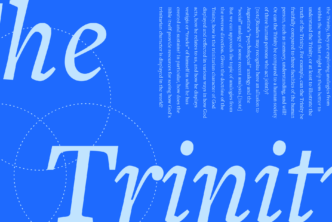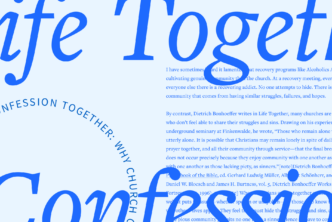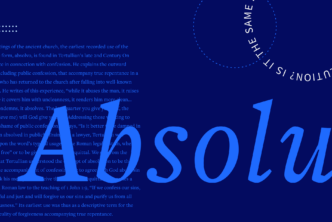I lay awake, staring into darkness, mentally replaying a conversation from earlier that day. My friend had misunderstood me and then condemned me for it. I felt deeply wronged. I also felt a toxic mixture of anger, self-pity, and self-righteousness creeping through my veins. It is often much easier to pray, “Forgive us our trespasses” than, “as we forgive those who trespass against us.”
While the Bible didn’t provide me with an answer for my particular conflict, I found insight in the message of the eighth-century prophet, Amos.
God is not unaware
The book of Amos opens with the Lord “roaring” from Zion (1:2). This forceful expression of judgment is directed toward nations who don’t acknowledge God. Amos 1:2–2:3 presents a thorough indictment of the sins of Damascus, Gaza, Tyre, Edom, Ammon, and Moab.
The indictments reveal God’s passion for the humane treatment of others. He condemns the Ammonites for the brutality of their attacks on pregnant women (Amos 1:13), and he calls Tyre to account for forsaking its “covenant of brotherhood” with Israel (1:9).
These charges are based on keeping covenant obligations. They also demonstrate that the whole world—not just Israel—must answer to the one true God, the author and sustainer of all creation (5:8–9).
I take comfort in this reminder that God sees every act of injustice and holds wrongdoers accountable. I may not know exactly why God allows me to be treated unfairly, but I know he is aware when it happens. I can trust him to work out justice in the way he sees fit.
But there’s another feature of this passage that makes me decidedly uncomfortable. The people of Israel may be cheering for Amos as he lets loose on the nations, but there’s a troubling trend in the prophecies: The indictments are getting closer and closer to home. Amos begins with the surrounding nations and their great cities (e.g., Damascus, Gaza, Tyre) before dealing with Israel’s “cousin” nation, Edom, and then with its “sister” nation, Judah. Then, in Amos 2:6, the lion roars against Israel—and it continues to roar for eight chapters. Yes, Israel has been wronged, but it has also done grievous wrong.
Full provision for forgiveness
This passage speaks to the sin that we so often gloss over, reminding me that I must carefully weigh my own actions. I am rarely free of sin, and if I justify my own sin while decrying the sin of others, I tread dangerous waters. Although I may be misunderstood and unfairly criticized, God calls me to acknowledge my own sin in every conflict.
The good news is that I can freely acknowledge my faults because God has made full provision for my forgiveness. The book of Amos declares God’s justice, but it ends with tender mercies of a forgiving God (9:11–15). God promises to show mercy to his people through a future king in David’s line. The earliest Christians knew that prophesied king was Jesus (Acts 15:13–21), and so do we. Through Jesus, we’re forgiven.
These truths have helped me to forgive. I trust God to work justice, and I thank him for his abundant mercy. He’s at work in my life, using even this conflict to make me, slowly and sometimes painfully, more like Jesus.
***
This article originally appeared in the Jan/Feb 2014 issue of Bible Study Magazine. The title and headers are the addition of an editor.







